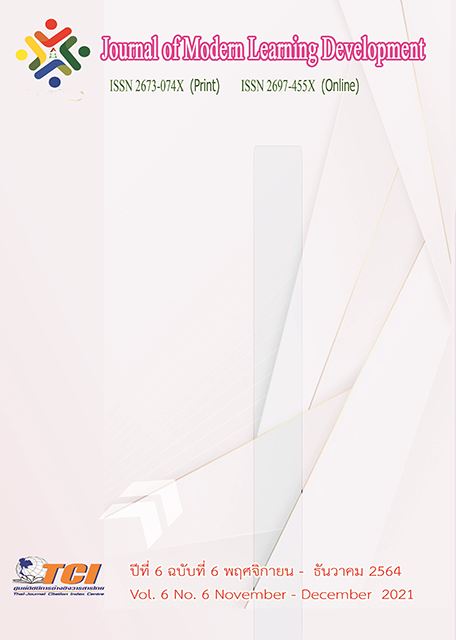Application of the Precepts and Dhamma Doctrines in Working
Main Article Content
Abstract
Problems always arise in work, but when problems are found, the most important thing is to deal with them consciously and it is important to always adhere to the principles of the Buddha. Some principles that can be applied in work, they consisted of 1) to follow the principles of work and practice by working with the free mind 2) to understand the matter of the world with consciousness and wisdom 3) dhramic principles to adhere to when there is a conflict 4) work with a wide variety of people and 5) prayer.
The prayer to create a mind that has great power that will be a source of peace and concentration, we should consider with wisdom and know various problems into thinking by ponder and should keep the mind free while working so as not to let the passion get into causing damage. The easy way is to work in accordance with the responsibilities of the job and the mind should be freed while working so as not to let the passion get in the way of damaging work at the same time. Not fantasizing in order to prevent clinging to stick to it, because work should be done for the success of the job without expecting goodness or self-honor. This approach is a way to cultivate goodwill and help gain the cooperation of all people. In addition, we should spend less time doing a lot of work, finding ways to have fun working so as not to become suffering and you will be able to build yourself up to a higher position and create them to achieve higher results which the conflict will decrease accordingly. Resolving conflicts can be done by preventing their occurrence of power, emotions, benefits, and miscommunication, etc.
Article Details
References
พุทธทาสภิกขุ. (2537). วิปัสสนาในการทำงาน ทำงานด้วยจิตว่าง ทางกาย จิตและปัญญา. กรุงเทพมหานคร:ธรรมสภา
พระพรหมคุณาภรณ์ (ป.อ. ปยุตฺโต). (2546). พจนานุกรมพุทธศาสตร์ ฉบับประมวลธรรม. (พิมพ์ครั้งที่ 12). กรุงเทพมหานคร: สหธรรมิก.
พระพรหมคุณาภรณ์ (ป.อ.ปยุตฺโต). (2552). พุทธธรรม ฉบับปรับปรุงและขยายความ. (พิมพ์ครั้งที่ 11). กรุงเทพมหานคร: โรงพิมพ์มหาจุฬาลงกรณราชวิทยาลัย.
พระพยอม กัลป์ยาโณ. (2550). โลกธรรม 8 ประการ. กรุงเทพมหานคร: ธรรมสภา.
พระโสภณพัฒนบัณฑิต. (2562). หลักการทำงานของบุคลากรมหาวิทยาลัย. ขอนแก่น: มหาวิทยาลัยมหาจุฬาลงกรณราชวิทยาลัย วิทยาเขตขอนแก่น.
สำลี สิงหรา. (2556). ศึกษาสมาธิและปัญญาในการปฏิบัติวิปัสสนาภาวน. วิทยานิพน์พุทธศาสตรมหาบัณฑิต. บัณฑิตวิทยาลัย: มหาจุฬาลงกรณราชวิทยาลัย.
สม สุจีรา. (2559). ธรรมะหน้าเด้ง. กรุงเทพมหานคร. อรมรินทร์ธรรมะ อมรินทร์พริ้นติ้งแอนด์พับลิชชิ่ง.


